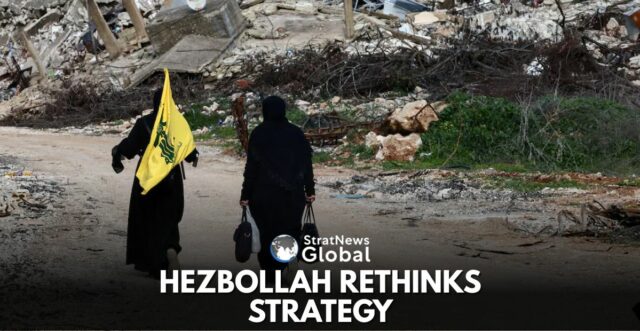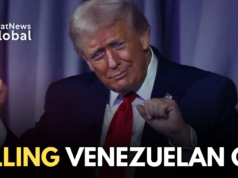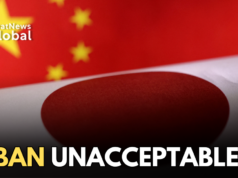Hezbollah has initiated a major strategic review following its devastating war with Israel, including discussions on reducing its role as an armed movement without fully disarming, according to three sources familiar with the talks.
The internal discussions, which aren’t yet finalised and haven’t previously been reported, reflect the formidable pressures the Iran-backed Lebanese militant group has faced since a truce was reached in late November.
Israeli forces continue to strike areas where the group holds sway, accusing Hezbollah of ceasefire violations, which it denies. It is also grappling with acute financial strains, U.S. demands for its disarmament and diminished political clout since a new cabinet took office in February with U.S. support.
The group’s difficulties have been compounded by seismic shifts in the regional power balance since Israel decimated its command, killed thousands of its fighters and destroyed much of its arsenal last year.
Hezbollah’s Syrian ally, Bashar al-Assad, was toppled in December, severing a key arms supply line from Iran. Tehran is now emerging from its own bruising war with Israel, raising doubts over how much aid it can offer, a regional security source and a senior Lebanese official told Reuters.
‘Clandestine Discussions’ Underway
Another senior official, who is familiar with Hezbollah’s internal deliberations, said the group had been holding clandestine discussions on its next steps. Small committees have been meeting in person or remotely to discuss issues including its leadership structure, political role, social and development work, and weapons, the official said on condition of anonymity.
The official and two other sources familiar with the discussions indicated Hezbollah has concluded that the arsenal it had amassed to deter Israel from attacking Lebanon had become a liability.
Hezbollah “had an excess of power,” the official said. “All that strength turned into a weak point.”
Under the leadership of Hassan Nasrallah, who was killed last year, Hezbollah grew into a regional military player with tens of thousands of fighters, rockets and drones poised to strike Israel. It also provided support to allies in Syria, Iraq and Yemen.
Israel came to regard Hezbollah as a significant threat. When the group opened fire in solidarity with its Palestinian ally Hamas at the start of the Gaza war in 2023, Israel responded with airstrikes in Lebanon that escalated into a ground offensive.
Hezbollah has since relinquished a number of weapons depots in southern Lebanon to the Lebanese armed forces as stipulated in last year’s truce, though Israel says it has struck military infrastructure there still linked to the group.
Arms Concessions Under Consideration
Hezbollah is now considering turning over some weapons it has elsewhere in the country – notably missiles and drones seen as the biggest threat to Israel – on condition Israel withdraws from the south and halts its attacks, the sources said.
But the group won’t surrender its entire arsenal, the sources said. For example, it intends to keep lighter arms and anti-tank missiles, they said, describing them as a means to resist any future attacks.
Hezbollah’s media office did not respond to questions for this article.
Israel’s military said it would continue operating along its northern border in accordance with the understandings between Israel and Lebanon, in order to eliminate any threat and protect Israeli citizens.
The U.S. State Department declined to comment on private diplomatic conversations, referring questions to Lebanon’s government. Lebanon’s presidency did not respond to questions.
For Hezbollah to preserve any military capabilities would fall short of Israeli and U.S. ambitions. Under the terms of the ceasefire brokered by the U.S. and France, Lebanon’s armed forces were to confiscate “all unauthorized arms”, beginning in the area south of the Litani River – the zone closest to Israel.
Lebanon’s government also wants Hezbollah to surrender the rest of its weapons as it works to establish a state monopoly on arms.
Failure to do so could stir tensions with the group’s Lebanese rivals, which accuse Hezbollah of leveraging its military might to impose its will in state affairs and repeatedly dragging Lebanon into conflicts.
All sides have said they remain committed to the ceasefire, even as they traded accusations of violations.
(With inputs from Reuters)





